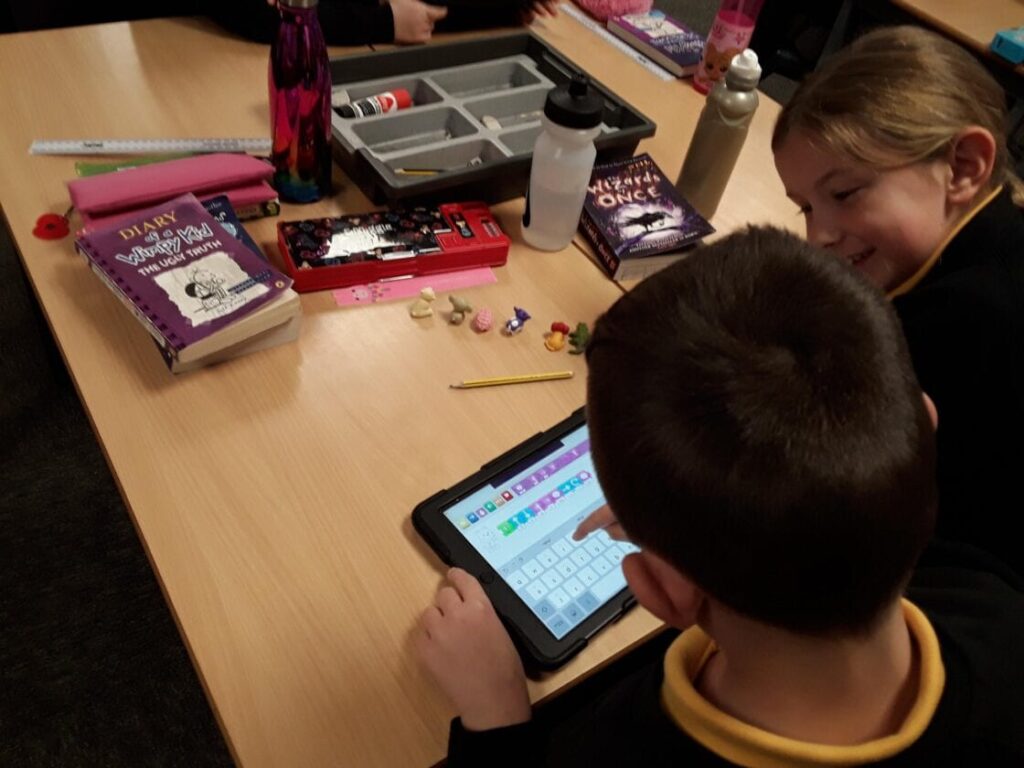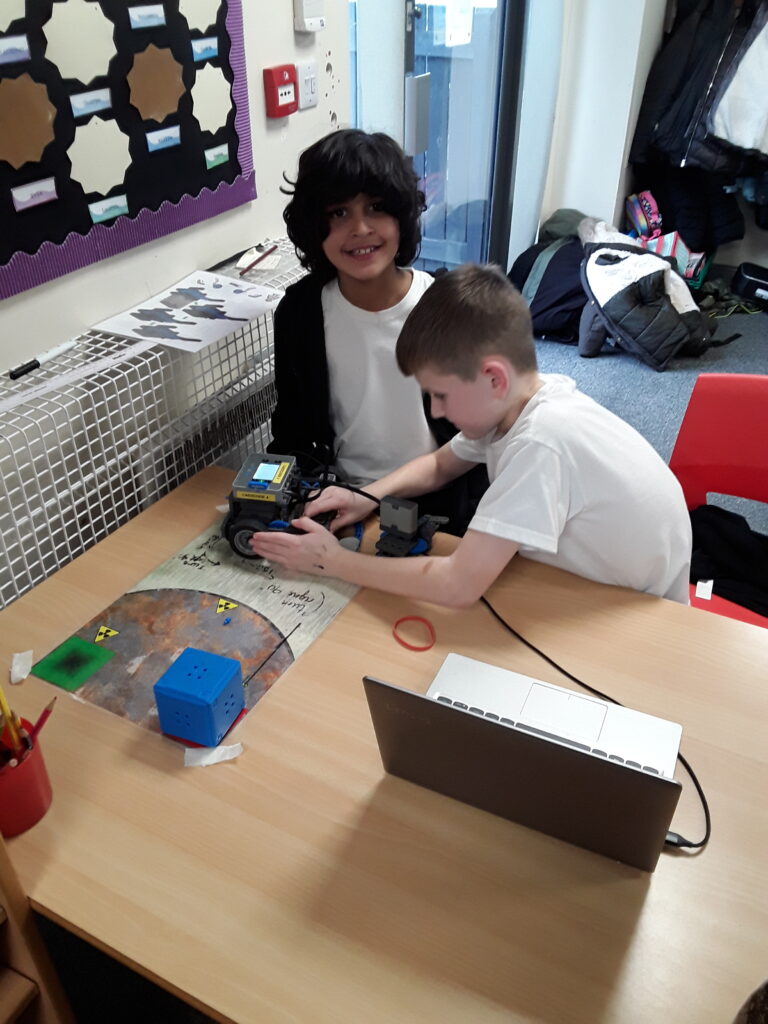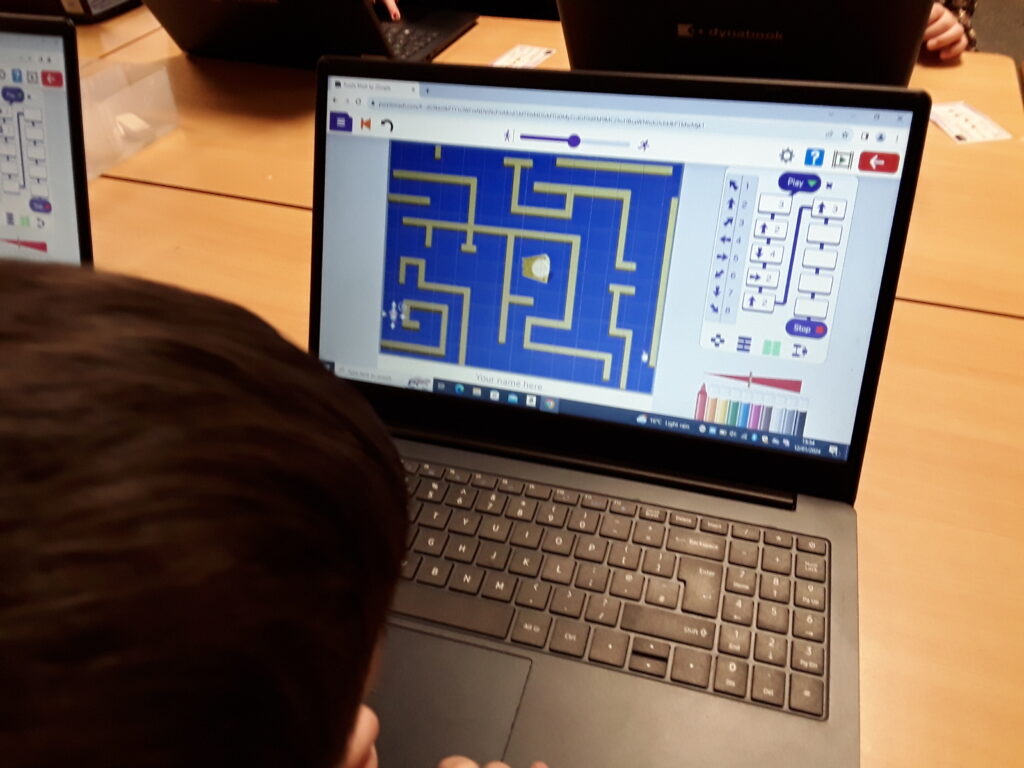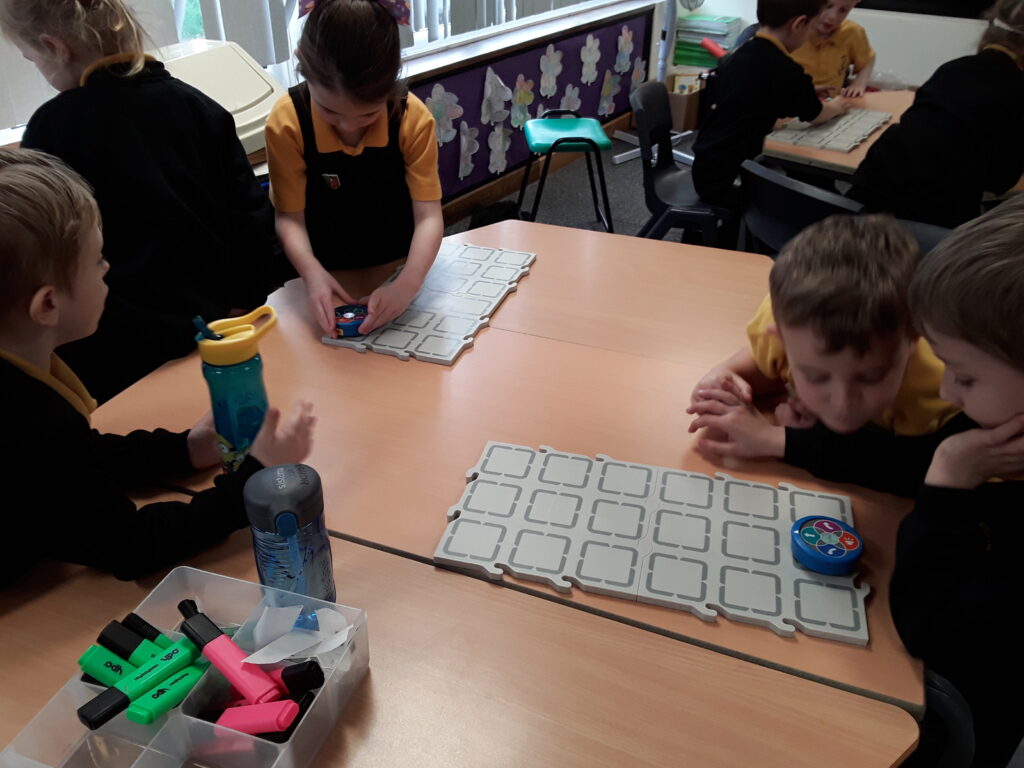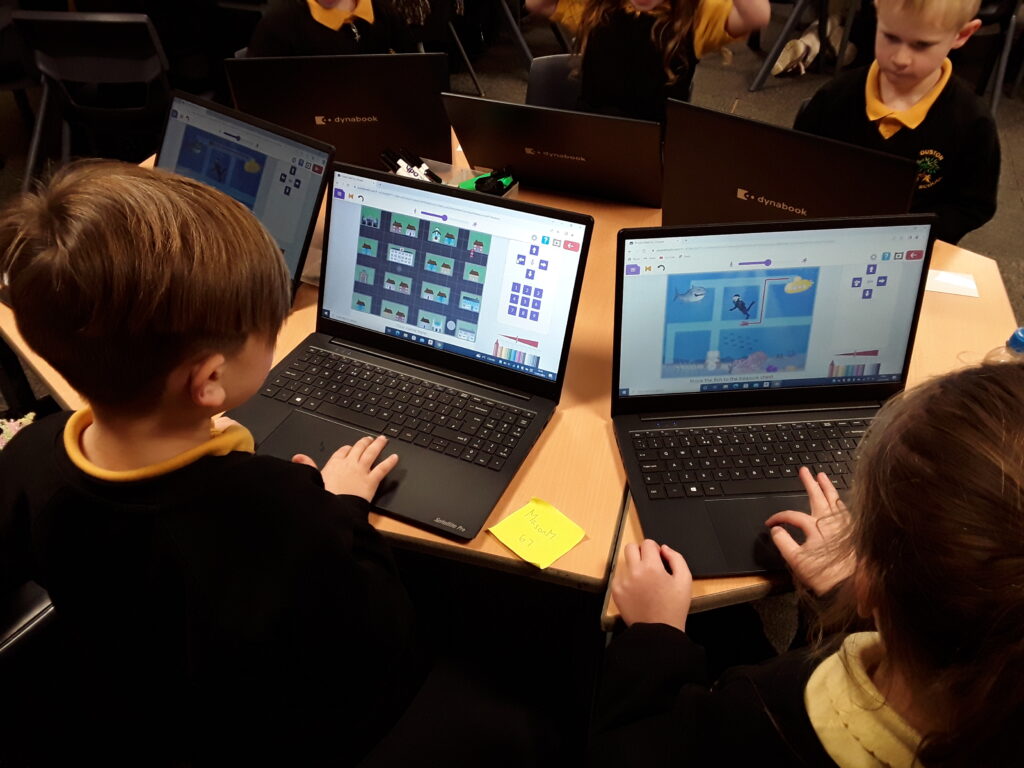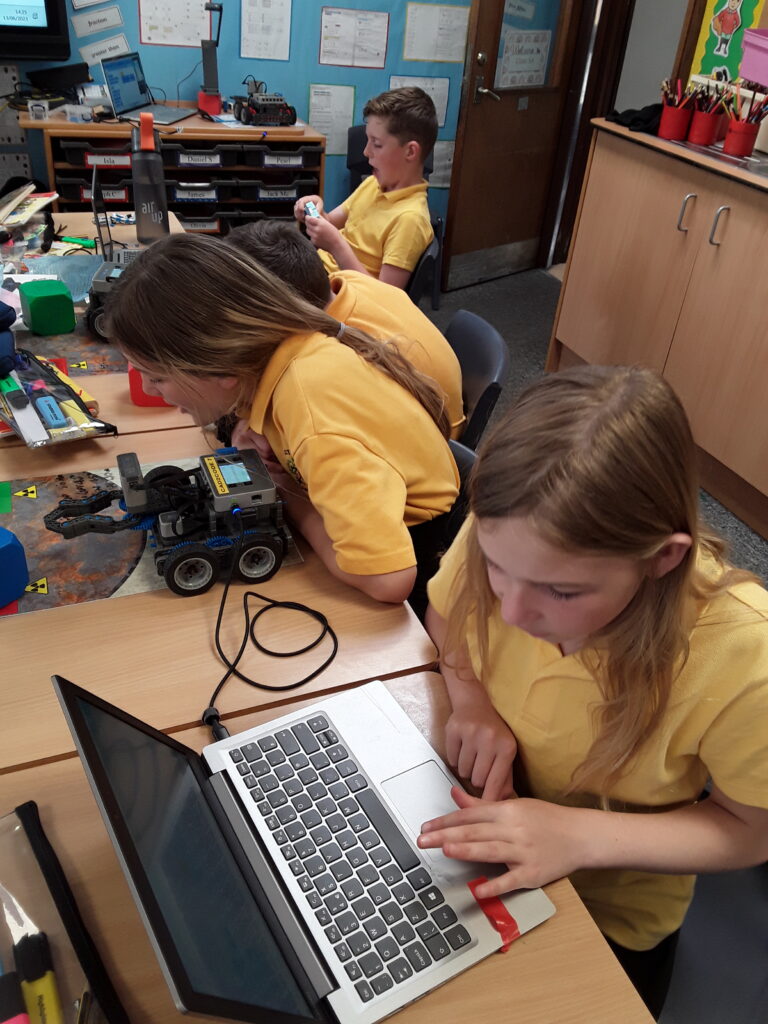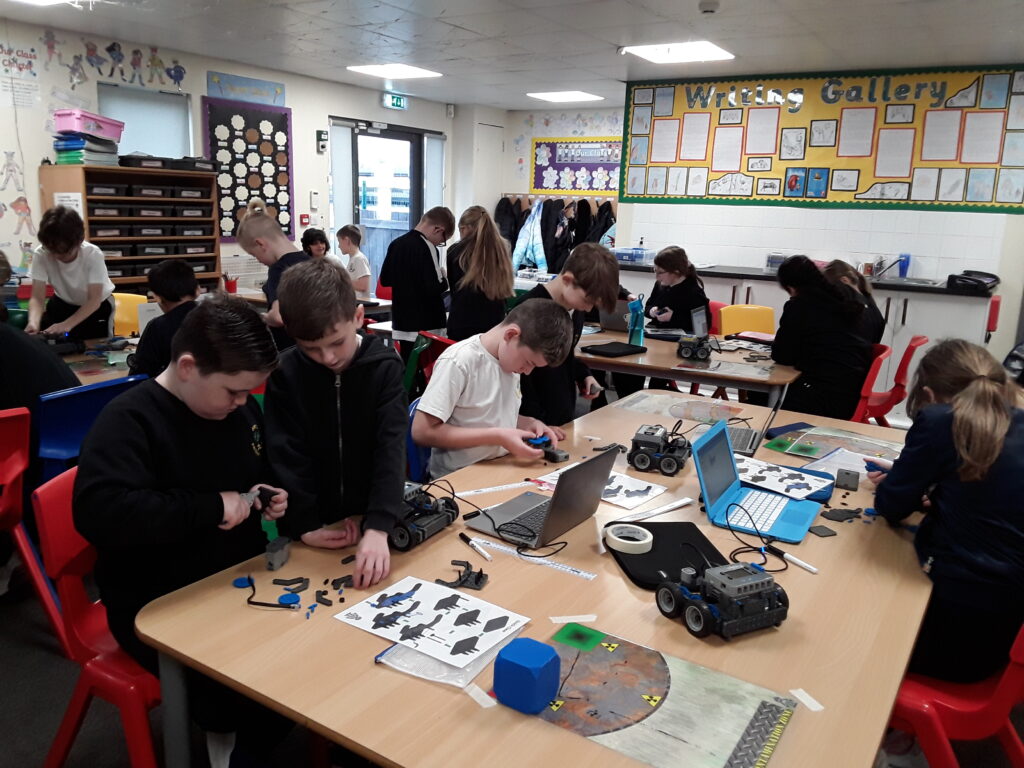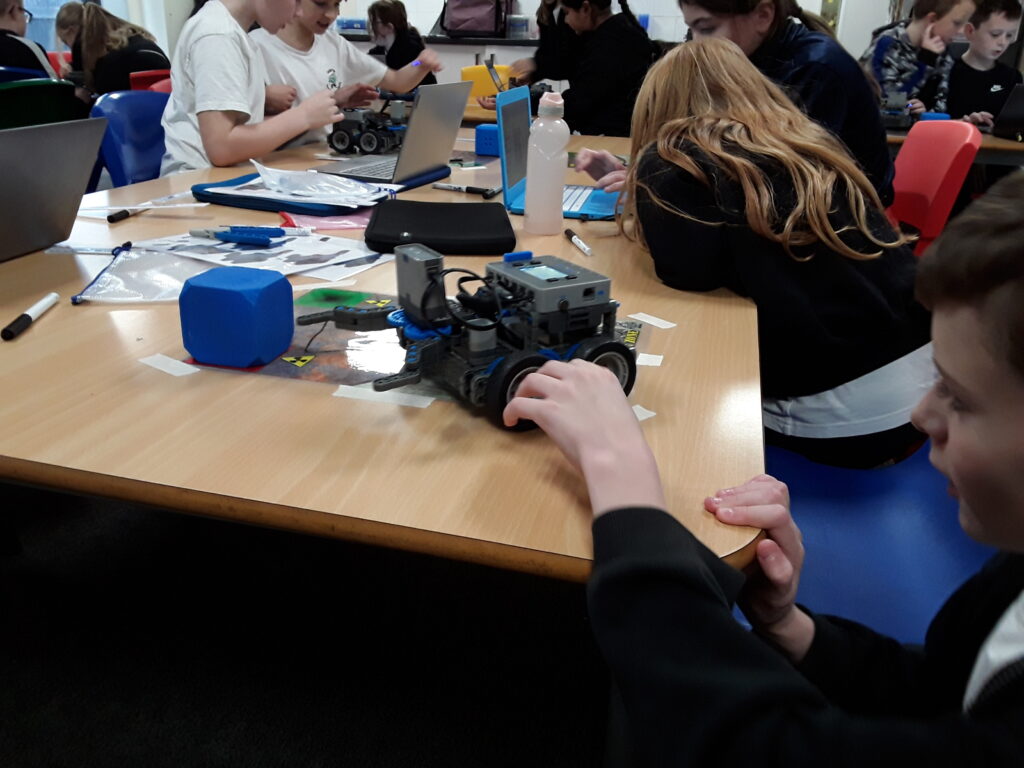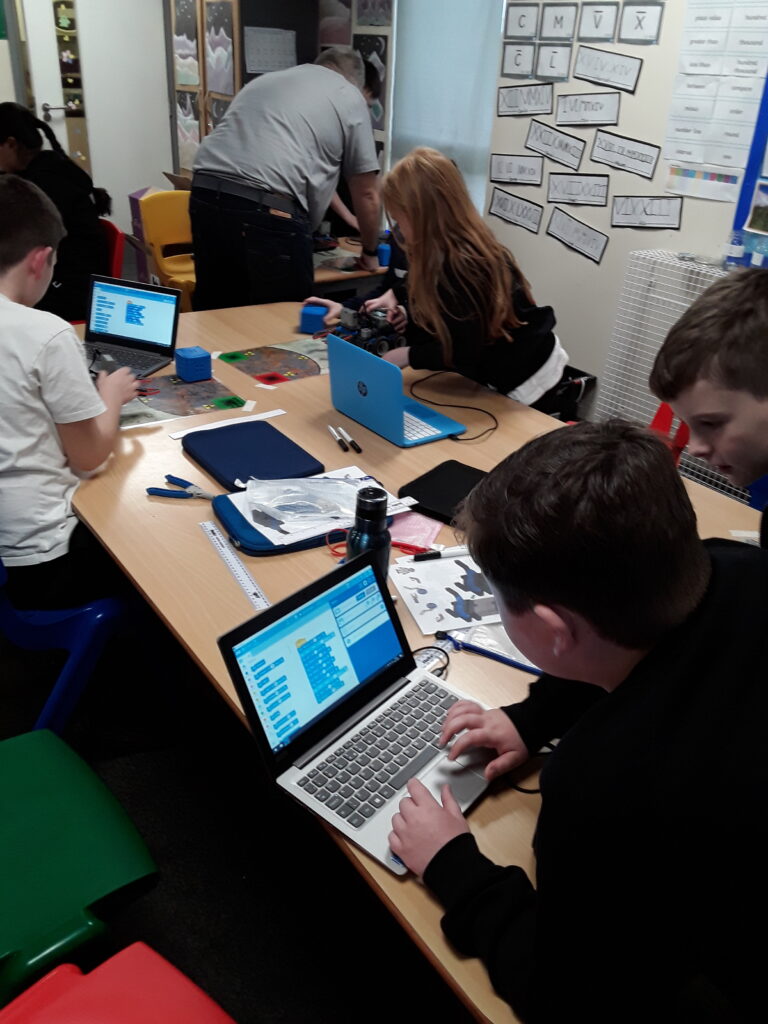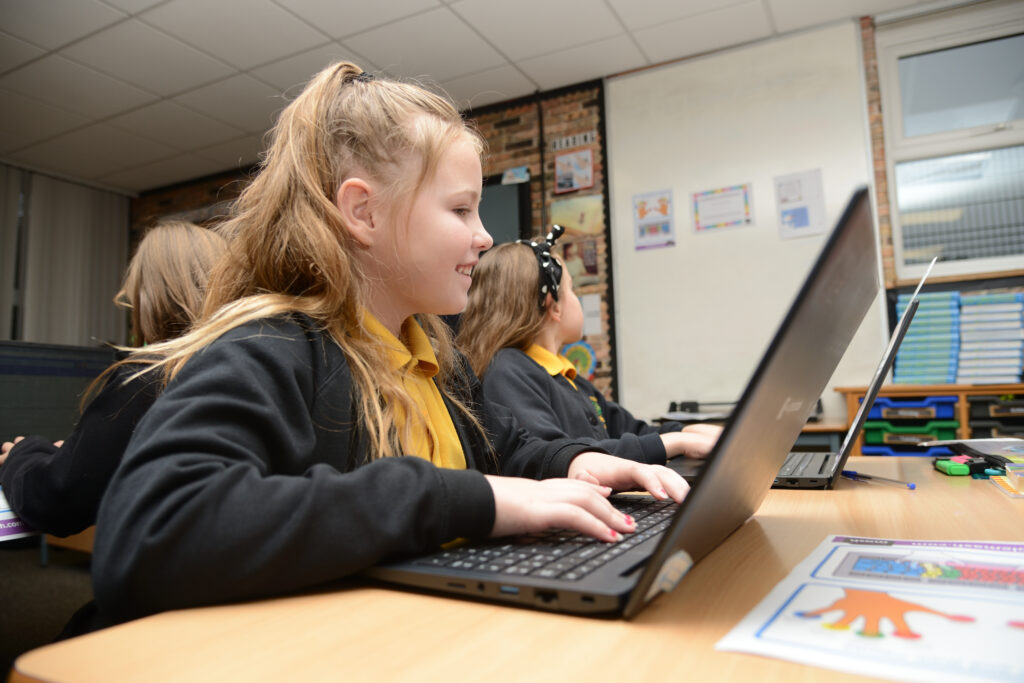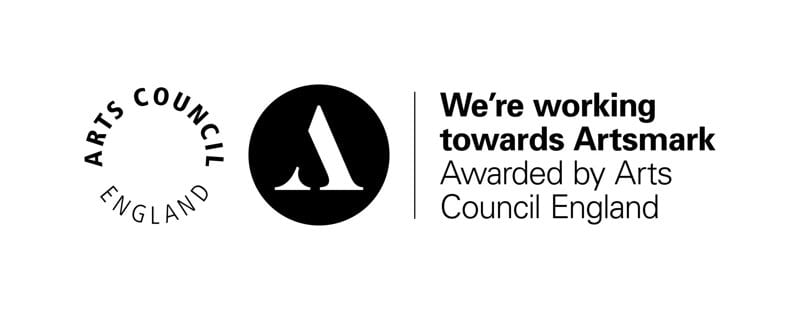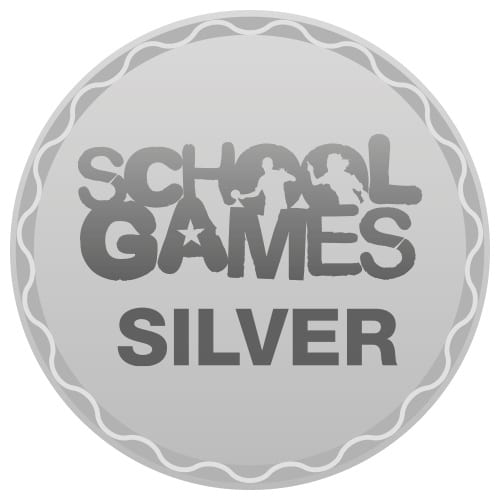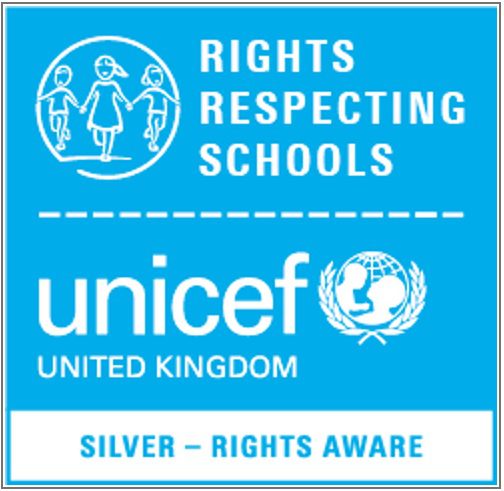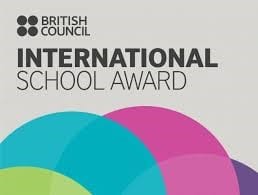As technology rapidly develops in today’s world and becomes an essential part of our society, we ensure our children learn how to access the digital world safely to communicate, play and learn. From Reception through to Year 6, we aim to develop skills within the three main areas of computing- Computer Science, Information Technology and Digital literacy to meet the aim of the National Curriculum.
Through the following the national curriculum for computing, we aim to ensure that all of Ouston Primary School pupils:
- can understand and apply the fundamental principles and concepts of computer science, including abstraction, logic, algorithms and data representation
- can analyse problems in computational terms, and have repeated practical experience of writing computer programs in order to solve such problems
- can evaluate and apply information technology, including new or unfamiliar technologies, analytically to solve problems
- are responsible, competent, confident and creative users of information and communication technology.

